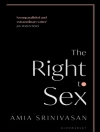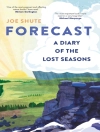The essays in this collection were crafted in celebration of the centenaries, in 2019, of Peter Abrahams, Noni Jabavu, Sibusiso Cyril Lincoln Nyembezi and Es’kia Mphahlele, all of whom were born in 1919. These foundational writers produced more than a half-century of writing and cultural production spanning criticism, editorials, essays, fiction, journalism, life writing and orature. The essays in the collection showcase these writers’ multifaceted engagements and generative insights on a wide range of issues, including precolonial existence, colonialism, empire, race, the language question, tradition, gender, modernity, exile, Pan-Africanism and decolonisation. A number of political and thematic threads cut across the essays, including those that explore the significance of the ‘colour line’, the role of education and cultural practices amidst the unfolding of colonial modernity, state racism and print culture in South Africa and elsewhere. Foundational African Writers examines the ways in which the centenarians’ legacies still resonate in the present and how the body of work that they produced is crucial to the genealogies and institutions of modern African and diasporic black arts and letters. Studying their works revisits established debates, provokes possibilities for interdisciplinary engagement with the imperatives of decolonisation and opens up new trajectories for future scholarship.
表中的内容
List of illustrations Foreword – Simon Gikandi Acknowledgements Tribute to Professor Bhekizizwe Peterson – Jill Bradbury, Khwezi Mkhize and Makhosazana Xaba Introduction – Bhekizizwe Peterson, Khwezi Mkhize and Makhosazana Xaba Part I: Remapping and Rereading African Literature and Cultural Production Chapter 1 Foundational Writers and the Making of African Literary Genealogy: Es’kia Mphahlele and Peter Abrahams – James Ogude Chapter 2 Foundational African Literary Discourse and Dimensions of Authority – Obi Nwakanma Chapter 3 Situating Sibusiso Nyembezi in African Literary History – Sikhumbuzo Mngadi Chapter 4 A Footnote and a Pioneer: Noni Jabavu’s Legacy – Athambile Masola Chapter 5 ‘Navigations of Tyranny’: Reconsidering Es’kia Mphahlele’s Writing – Crain Soudien Chapter 6 Noni Jabavu and the Sensibilities of Early Black Educated Elites – Hugo Canham Part II: South Africa and Fugitive Imaginaries Chapter 7 (Un)Homing and the Uncanny: The (Auto)Biographical Es’kia Mphahlele – Thando Njovane Chapter 8 In the Shadows of the British Empire: Nyembezi’s Inkinsela Yase Mngungundlovu – Innocentia J. Mhlambi Chapter 9 Escaping Apartheid: Race, Education and Cultural Exchange, 1955–2003 – Anne-Maria Makhulu Chapter 10 Photographing Home Life in Alexandra between the 1930s and the 1970s – Thuto Thipe 11 Down Avenues of (Un)Learning: Reading, Writing and Being – Jill Bradbury Part III: In the Eye of the Short Century: Diaspora and pan-Africanism Reconsidered Chapter 12 Es’kia Mphahlele and the Question of the Aesthetic – Khwezi Mkhize Chapter 13 ‘African Contrasts’: Noni Jabavu’s Travelogue as Kaleidoscope – Tina Steiner Chapter 14 Es’kia Mphahlele, Chemchemi and Pan-African Literary Publics – Christopher E.W. Ouma Chapter 15 The ‘Crossroads and Forkways’ of Pan-Africanism between 1948 and 1968 – Bhekizizwe Peterson Chapter 16 ‘She Certainly Couldn’t Be Conventional If She Tried’: Noni Jabavu, the Editor of The New Strand Magazine in London – Makhosazana Xaba Chapter 17 Anti-Colonial Romance and Tragedy in Peter Abrahams’ A Wreath for Udomo – Andrea Thorpe 18 Mphahlele’s Writing in the Whirlwind – Stéphane Robolin Chapter 19 From South Africa to Coyaba: Peter Abrahams’ (New) World Geographies – Victoria J. Collis-Buthelezi Contributors Index
关于作者
Andrea Thorpe is a researcher and teacher focusing on South African diasporic writing. She holds a Ph D from Queen Mary University of London.












